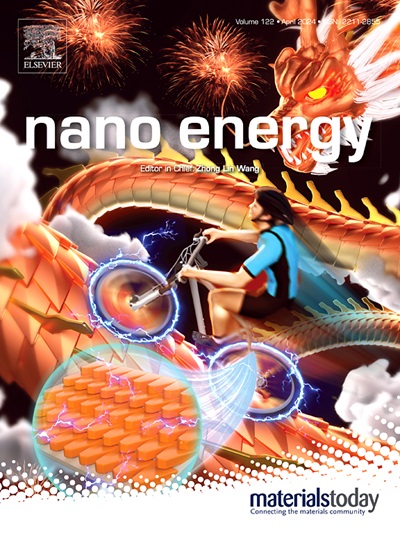Robust solutions to intelligent and connected transportation systems through energy self-sufficient technology
IF 16.8
1区 材料科学
Q1 CHEMISTRY, PHYSICAL
引用次数: 0
Abstract
The rapid growth of Intelligent Connected Transportation Systems (ICTS) enhances road traffic efficiency and safety. A reliable power supply for the human-vehicle-road-environment ecosystem is key to ICTS deployment. With the global shift toward sustainability, integrating transportation and energy technologies is becoming crucial. The emergence of roadway-based distributed energy harvesting technologies introduces a new approach to ensuring energy supply within ICTS. This perspective offers a comprehensive evaluation of the current ICTS landscape, examining the relationship between energy supply and demand, the limitations of traditional natural energy harvesting methods, and the potential of high-entropy energy sources from road environments. This study examines the strategic application of distributed energy through self-powered devices and the integration of distributed energy resources (DER)-based microgrids, underlining the necessity of a robust electrical infrastructure to support the expansion of ICTS. A robust, self-sufficient energy system framework must include emergency response capabilities and coordinated dispatch with the grid. Such an approach is essential for improving the resilience and adaptability of ICTS in the face of dynamic energy demands and unforeseen challenges.

通过能源自给自足技术为智能互联交通系统提供强大的解决方案
智能互联交通系统(ICTS)的快速发展提高了道路交通效率和安全性。为人-车-路-环境生态系统提供可靠的电源是ict部署的关键。随着全球向可持续发展的转变,整合交通和能源技术变得至关重要。基于道路的分布式能量收集技术的出现为确保信息通信技术内部的能源供应引入了一种新方法。这一视角提供了对当前ict格局的全面评估,考察了能源供需之间的关系、传统自然能源收集方法的局限性以及道路环境中高熵能源的潜力。本研究考察了通过自供电设备和基于分布式能源(DER)的微电网集成的分布式能源的战略应用,强调了支持信息通信技术扩展的强大电力基础设施的必要性。一个强大的、自给自足的能源系统框架必须包括应急响应能力和与电网的协调调度。面对动态的能源需求和不可预见的挑战,这种方法对于提高信息通信技术的复原力和适应性至关重要。
本文章由计算机程序翻译,如有差异,请以英文原文为准。
求助全文
约1分钟内获得全文
求助全文
来源期刊

Nano Energy
CHEMISTRY, PHYSICAL-NANOSCIENCE & NANOTECHNOLOGY
CiteScore
30.30
自引率
7.40%
发文量
1207
审稿时长
23 days
期刊介绍:
Nano Energy is a multidisciplinary, rapid-publication forum of original peer-reviewed contributions on the science and engineering of nanomaterials and nanodevices used in all forms of energy harvesting, conversion, storage, utilization and policy. Through its mixture of articles, reviews, communications, research news, and information on key developments, Nano Energy provides a comprehensive coverage of this exciting and dynamic field which joins nanoscience and nanotechnology with energy science. The journal is relevant to all those who are interested in nanomaterials solutions to the energy problem.
Nano Energy publishes original experimental and theoretical research on all aspects of energy-related research which utilizes nanomaterials and nanotechnology. Manuscripts of four types are considered: review articles which inform readers of the latest research and advances in energy science; rapid communications which feature exciting research breakthroughs in the field; full-length articles which report comprehensive research developments; and news and opinions which comment on topical issues or express views on the developments in related fields.
 求助内容:
求助内容: 应助结果提醒方式:
应助结果提醒方式:


